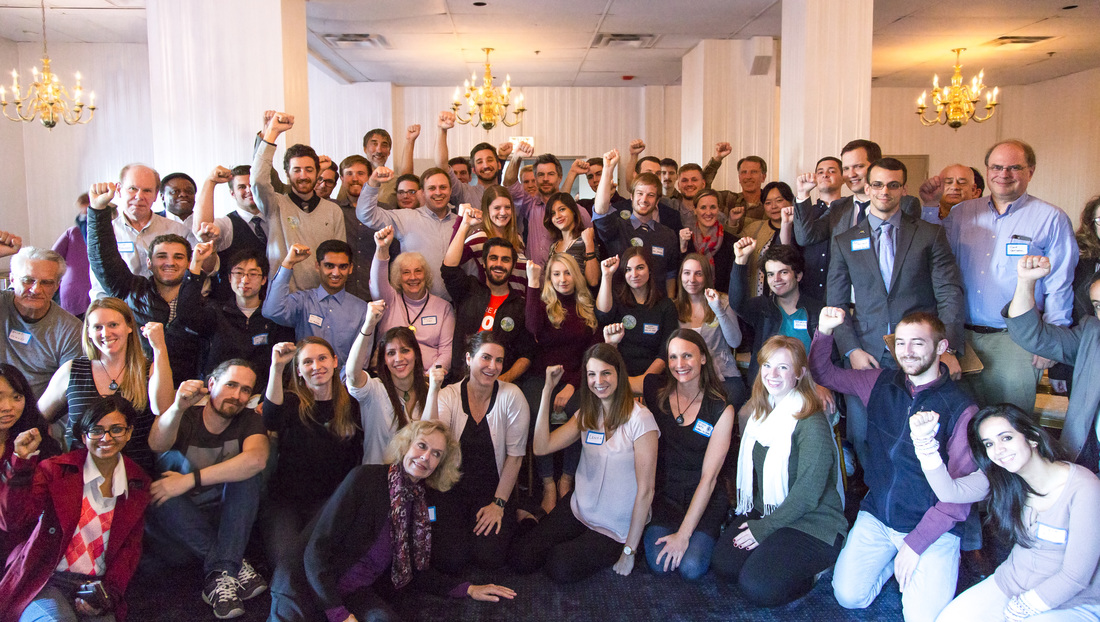“So, what do you do?” The dreaded question. It’s almost as complicated for me to answer as “Where are you from?” (The answer to that, in case you’re wondering.) When I tell people that I’m a nuclear engineer, the conversation never stops there. People don’t just say “oh, ok” when I drop a bomb like that.
The great thing about having a “unique” major and career is that it makes my job of advocating for nuclear energy much easier. People almost always want to know more, whether they have positive, negative, or neutral feelings about it. And they almost always ask, “how did you get into that?” Well in honor of attending the first Save the Nukes Leadership Summit this weekend, here’s my story of how I “became a nuke.”
It all starts in the small town of Trnava, where my parents are from in Slovakia. My dad worked on the city’s district heating project, which brings steam from the nearby Bohunice Nuclear Power Plant to the city’s buildings for heat. My dad, like most people in Trnava, was supportive of the nuclear plant because it brought clean electricity and heat to the city – and because there was no negative protesting to garner public fear in a communist government. And really no choice or public involvement as to whether there should be a nuclear power plant or not.
My parents left Slovakia to immigrate to the U.S. when I was very young. As a result, I traveled a lot as a kid going to visit my grandparents and cousins in Slovakia every summer. My first international flight alone, I was 8 years old. I really liked flying and idolized the flight attendants and pilots – this was back when they would still let you see the cockpit. I think this is what initially inspired my curiosity for science.
Growing up, my dad and I talked quite a bit about science and technology and he always told me “don’t believe the environmentalists,” they’ve actually done more harm than good for this planet. As in, if the environmentalist movement hadn’t protested against nuclear energy in the 1970s and 80s, we’d have a lot more carbon-free electricity from nuclear and a lot less coal plants.
My favorite classes in high school were marketing and business, but I was also good at math and science. Along with my teachers and parents, we decided that engineering was probably the best option for me. I chose to attend college at Purdue University, because of their excellent aerospace program, and because Neil Armstrong went there. But what actually turned out to be the best thing about Purdue’s engineering program was the flexibility in the first year. You could explore all of the different types of engineering majors as a freshman and then chose one going into your second year.
This gave me a chance to take an introductory class on nuclear energy – and I was inspired, also reflecting on what my dad always told me. I made the decision to go with nuclear engineering, finding the need for clean energy more pressing than exploring space (although that is still really important too).
I wasn’t the best engineering student. I got through it, but not without a few bumps. I was much more inspired by the grand political issues of nuclear energy, rather than the science itself. I was also really good at explaining the science and technology in a way that “normal” people could understand. I discovered this skill through talking to my friends about nuclear energy and doing outreach to the local community.
So I decided to focus my Master’s research on policy issues and then got a job working in government. But I didn’t find myself making the impact that I wanted to make. So I went back to my other passions: marketing and business. I applied to business school and decided do the international program at INSEAD, because energy issues are global.
I considered many other career options at this point but was eventually convinced to go back to nuclear. My classmates said I was good at it, and I liked talking to them about it. So I finally made the decision that I was going to “be a nuke” and stick with it.
I think that energy is one of the most pressing issues that we have today because it can have so many positive (economic development) and negative (climate change) affects. And I strongly believe that nuclear energy can make the positives even more positive and mitigate the negatives.
Nuclear engineers are pretty bad at explaining how amazing nuclear energy is to the public. They focus on the science and the facts – which are important – but people are much more connected to emotions and personal stories. So, I’m not telling you why to support nuclear energy, but rather how I came to support it, and hopefully you trust me enough to open your mind to it, as well.


 RSS Feed
RSS Feed

